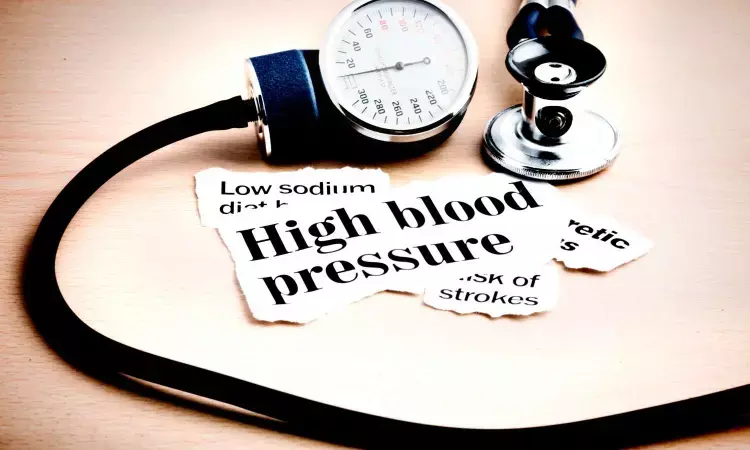- Home
- Medical news & Guidelines
- Anesthesiology
- Cardiology and CTVS
- Critical Care
- Dentistry
- Dermatology
- Diabetes and Endocrinology
- ENT
- Gastroenterology
- Medicine
- Nephrology
- Neurology
- Obstretics-Gynaecology
- Oncology
- Ophthalmology
- Orthopaedics
- Pediatrics-Neonatology
- Psychiatry
- Pulmonology
- Radiology
- Surgery
- Urology
- Laboratory Medicine
- Diet
- Nursing
- Paramedical
- Physiotherapy
- Health news
- Fact Check
- Bone Health Fact Check
- Brain Health Fact Check
- Cancer Related Fact Check
- Child Care Fact Check
- Dental and oral health fact check
- Diabetes and metabolic health fact check
- Diet and Nutrition Fact Check
- Eye and ENT Care Fact Check
- Fitness fact check
- Gut health fact check
- Heart health fact check
- Kidney health fact check
- Medical education fact check
- Men's health fact check
- Respiratory fact check
- Skin and hair care fact check
- Vaccine and Immunization fact check
- Women's health fact check
- AYUSH
- State News
- Andaman and Nicobar Islands
- Andhra Pradesh
- Arunachal Pradesh
- Assam
- Bihar
- Chandigarh
- Chattisgarh
- Dadra and Nagar Haveli
- Daman and Diu
- Delhi
- Goa
- Gujarat
- Haryana
- Himachal Pradesh
- Jammu & Kashmir
- Jharkhand
- Karnataka
- Kerala
- Ladakh
- Lakshadweep
- Madhya Pradesh
- Maharashtra
- Manipur
- Meghalaya
- Mizoram
- Nagaland
- Odisha
- Puducherry
- Punjab
- Rajasthan
- Sikkim
- Tamil Nadu
- Telangana
- Tripura
- Uttar Pradesh
- Uttrakhand
- West Bengal
- Medical Education
- Industry
Females with Long COVID may be at higher risk of developing hypertension

USA: A recent study, for the first time, has shown that resting BP (blood pressure) and central arterial stiffness are greater in females with post-acute sequelae of COVID-19 (PASC) compared with controls. However, peripheral and cerebral vascular functions appear unaffected.
Additionally, the study did not show any relationship between PASC symptom burden and arterial stiffness, BP, or vascular function measures. The findings, published in the American Journal of Physiology-Heart and Circulatory Physiology, suggest that women with PASC could be at greater risk of developing hypertension, which appears independent of symptom burden.
Post-acute sequelae of COVID-19 (PASC), colloquially referred to as long COVID-19 or long COVID, is when someone recovers from acute COVID-19 but shows a cluster of symptoms for months.
Between 10 and 20 percent of people who develop COVID-19 experience some symptoms of long COVID, such as fatigue, brain fog and shortness of breath. Long COVID is more prevalent in women.
In the current study, researchers collected a variety of detailed cardiovascular measures from 12 women with long COVID and 11 healthy women (controls) matched for age, height, weight and body mass index. In addition, the long COVID participants answered a questionnaire about the nature and severity of their ongoing symptoms.
The vascular function measures in the two groups' limbs and brain did not differ significantly. However, the long COVID group had significantly higher resting blood pressure when measured from the arm while lying quietly, and also higher central arterial stiffness. However, the severity of blood pressure elevation and arterial stiffness did not correlate to the severity of symptoms long COVID participants reported in the questionnaire.
The researchers noted that while only one participant with long COVID had been diagnosed with hypertension before contracting COVID-19, “two patients had received a new diagnosis of hypertension post-COVID-19, two had resting [blood pressure] values classified as Stage II hypertension, one as Stage I hypertension and two with high [blood pressure] based on the current guidelines.” The elevation in resting blood pressure was consistent.
Conversely, though 11 of the 12 people in the long COVID group reported experiencing brain fog, they did not show signs of cerebral vascular dysfunction—indicating that the cause of that common symptom lies elsewhere.
“It is possible that the greater prevalence of PASC could worsen the already existing higher burden of hypertension in older females,” warn researchers.
References: Damsara Nandadeva, Rachel J. Skow, Brandi Y. Stephens, Ann-Katrin Grotle, Stephanie Georgoudiou, Surendra Barshikar, Yaewon Seo, and Paul J. Fadel Show fewer authors, 25 APR 2023 https://doi.org/10.1152/ajpheart.00018.2023
Dr Kamal Kant Kohli-MBBS, DTCD- a chest specialist with more than 30 years of practice and a flair for writing clinical articles, Dr Kamal Kant Kohli joined Medical Dialogues as a Chief Editor of Medical News. Besides writing articles, as an editor, he proofreads and verifies all the medical content published on Medical Dialogues including those coming from journals, studies,medical conferences,guidelines etc. Email: drkohli@medicaldialogues.in. Contact no. 011-43720751


